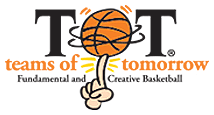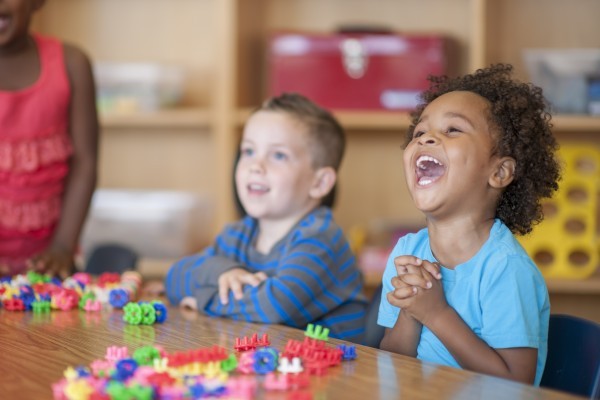Having trouble getting your preschooler to learn numbers, letters or anything else they need to know?
If you’re trying to get your little one to pick up a few foundational skills before life and school start happening, flashcards or crayons and paper may not cut it for some energetic youngsters. The parent and kid-friendly solution? Structured play.
Structured play, otherwise known as play with a purpose, combines an enjoyable activity with a learning objective. For instance, if you’re teaching him how to fold laundry, have him match sock pairs and count afterward to see how many he matched correctly. Or work on learning colors by letting her play with a palette of colorful fruits and vegetables at snack time.
Working in some physical activity helps too. The National Association for Sport and Physical Education recommends at least 30 minutes, while others recommend at least one hour, of structured physical activity per day for toddlers.
For preschoolers, structured play is one of the most advantageous ways to get your child learning and having fun. Using games or attention-grabbing activities to introduce toddlers to a new skill shows them learning doesn’t have to be boring. Check out seven ways your preschooler benefits from structured play, then get moving.
Introduces preschoolers to physical activity
With toddlers just learning about the world they’ve recently entered, engaging in structured movement and physical activity stands as one element they’ve most likely never experienced. So show them.
Playing games that require kids to move their arms and legs to exercise their muscles introduces them to an active lifestyle. Movement helps them to stay fit and helps them to recognize early that forms of exercise can be enjoyable.
Researchers released a study last year suggesting preschoolers were not getting enough physical activity. They observed active play at 10 child care centers, including adult-led activities, and concluded increasing the current amount of preschool active play benefits young children in a multitude of areas, including cardiovascular health, musculoskeletal development and even academic success.
Develops motor skills and coordination
Preschoolers’ seemingly relentless energy sparks them to move and discover the harmony of limbs and muscle movement. Their activity results in coordination development, a vital part of growing to do even the simplest physical life tasks. The key to instructing basic skills through structured play for toddlers is to focus on movement, not competition.
Improves one’s mood
Feel great after exercising? The flow of endorphins gives your body a feel-good boost, and toddlers are no different. Structured play gets them moving, meaning the possibility of more smiles and fewer tantrums. It also provides a good way to manage stress, which builds a foundation for your little one to deal with anxiety and other factors later in life.
Reinforces bonds with teachers
Or any other authority figure who reaches out to help your child. By engaging in adult-led structured play, preschoolers learn to instill trust in people who care about them, which lets them know they have support in their endeavors.
Gives a good introduction to sports
Many parents can’t wait for their children to start sports, but quite a few preschoolers may not be ready for such a challenging or fast-paced activity. With a short attention span and lack of understanding, your kiddo may end up running around mid game to catch ladybugs or chat with other teammates.
Structured play allows everyone to participate, ridding the concept of having to sit on the bench or wait a turn in batting order. Preschoolers get an introduction to fundamentals and handling the ball and other equipment used in the sport. Some structured play also deals with simple steps or tasks, making it easy to comprehend for whippersnappers.
Sharpens listening skills
Obeying requests and following directions pose as two challenges for some preschoolers. However, adult-led structured play that involves calling out commands, like Simon Says, teaches kids to listen closely and follow along.
Boosts self-esteem
For structured play in a class setting, like sports fundamentals, music or art, an end-of-session presentation may culminate the program. For kids performing in recitals, displaying paintings or showing off coordination skills, the act of putting their practice into an event for others to see increases self-esteem and lends a sense of achievement.
Let Your Preschooler Benefit from Structured Play with Teams of Tomorrow
Channel your preschooler’s nonstop energy into an activity that’s fun and educational. Teams of Tomorrow teaches your child basketball fundamentals while mixing in basic academic concepts, coordination development and music. Get your preschooler moving today with TOT!

